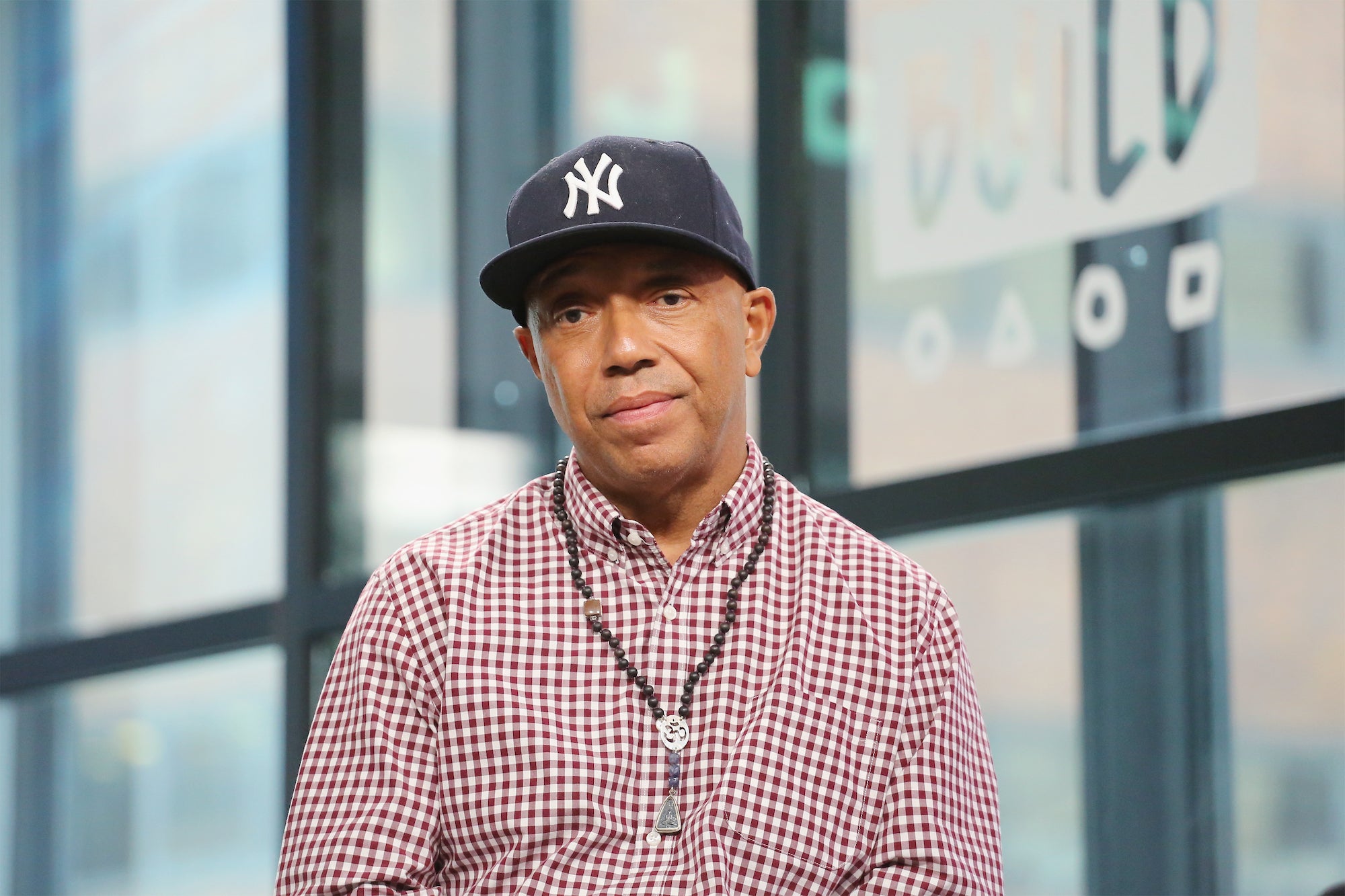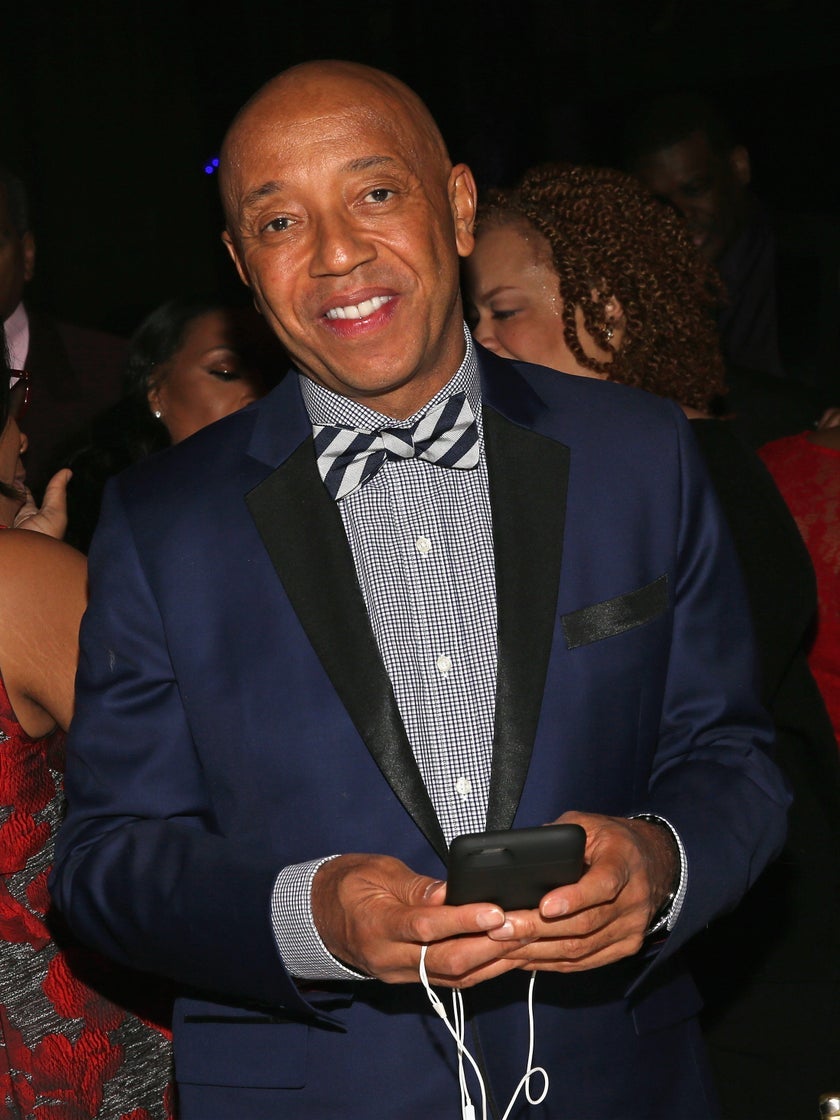
Even before I hit the play button to watch On the Record, the new documentary about the sexual assault allegations against Russell Simmons, I was predisposed to question them.
The Black community, mainly my own mother, raised me to believe that Black men are kings, and if you dared question them it’d mean that Black women were deemed traitors or corrupted by the White world. She also taught me to question the motives of criminal allegations raised by White women or any women in a position to gain money from those allegations. This is especially the case when the character of the accused–like Russell Simmons–seems incongruent with that of a sexual predator and more closely aligned with that of an enlightened yogi music mogul.
For centuries, Black women have been socialized in ways that minimize sexual violence as…violent. White men routinely sexually assaulted Black women during and after slavery in the United States to engender fear in Black women and assert dominance over Black men. And because of the “Strong Black Woman” stereotype, external displays of distress associated with sexual trauma are often cast aside. The years of institutionally-sanctioned rape of Black women, coupled with persistent stereotypes of hypersexuality, have created an inescapable legacy that is impossible to ignore.
Compounding matters, traditional gender norms in our society have led to rampant underreporting of sexual harassment or assault. An estimated three out of four sexual harassment cases are never formally reported and when victims do come forward, 75 percent report experiencing some form of retaliation.
With these conscious and unconscious biases in mind, I worried whether I would be able to access my true feelings about the women’s stories in On The Record. And given the controversy surrounding the film, I was preemptively skeptical that any story about Black women being assaulted by a Black man could be told effectively by White filmmakers.
Then I watched it. As the credits scrolled by, tears began streaming down my face–and I became acutely aware of how much I believed these women were sexually assaulted by Russell Simmons.
Here are five reasons why I believe them:

1. Drew Dixon is highly credible. Dixon, the main subject of the film, is an upper-class Black woman with self-proclaimed “light skinned privilege.” On camera, she is clearly a talented and intelligent woman. Not only is she a Stanford graduate (go Card!), but also appears to have been beloved by the likes of well-respected rappers like Biggie Smalls and Method Man. It is unlikely that her mother, a public figure who served as mayor of Washington D.C., would stand by as her daughter made false accusations against another very public and powerful man like Russell Simmons. Perhaps most notable is that Dixon did not immediately go public with these accusations. Instead, she waited until other victims came forward, which is common, according to psychological research.
2. Each victim’s account is strikingly similar. Dating back to the 1980s with the Mercedes Ladies, every Black woman accusing Simmons of sexual assault fits the “light skinned and skinny” type. They claim that Simmons, under false pretenses, convinced them to come back to his hotel or apartment to wait for a car, or sleep off drunkenness on the couch then he raped them. Of note, it was well-known that he commonly worked in his bedroom or hotel room. In Dixon’s case, he took advantage of her eagerness to hear a new demo by luring her into his bedroom to get a CD out of the player.

3. At least 15 women have come forward with allegations spanning over 30 years since the accusations were first made public in 2017. Alexia Norton Jones told Variety that Simmons raped her in his Manhattan apartment in 1990: “It was such a fast attack. He pulled my dress up. I must have said no seven to 10 times.” Jenny Lumet wrote in The Hollywood Reporter alleging Simmons raped her in 1991: “There is so much guilt, and so much shame. There is an excruciating internal reckoning. As a woman of color, I cannot express how wrenching it is to write this about a successful man of color.” Tina Baker told The New York Times that Simmons raped her in 1991 when he was her manager: “I didn’t sing for almost a year.”
(Editor’s note: Simmons has “apologized” for “thoughtlessness in my relationships with women” and even “inappropriate conduct,” but denied all accusations of rape back in 2018.)
4. The survivors describe past and present psychological symptoms that are clinically consistent with survivors of sexual trauma. The women in the film describe “blacking out,” which is consistent with dissociating or disconnecting from reality or consciousness to tolerate emotionally traumatic moments. They say they felt like a failure or “like trash,” which led to suicide attempts, future abusive relationships, blaming themselves and believing that they were undeserving of happiness. The women also experienced alterations in memory of the traumatic event, which often occurs when survivors do not have appropriate mental health treatment following a trauma.
5. I am a Black woman. I know what it feels like to have my body involuntarily groped by a man as an expression of “my beauty.” I know when it feels as if your only option is to have sex when you may not want to.
I can respect Russell Simmons’ contribution to the music world and still believe he assaulted those women. I can see his argument that women are falsely accusing him for financial gain as rational, and still believe he assaulted those women. I can feel upset that he may be prosecuted more aggressively than a White assailant, and still believe he assaulted those women.
To the women victimized by Russell Simmons: I believe you.
Kali D. Cyrus is a diversity strategist, practicing psychiatrist, and Assistant Professor at Johns Hopkins Medicine.